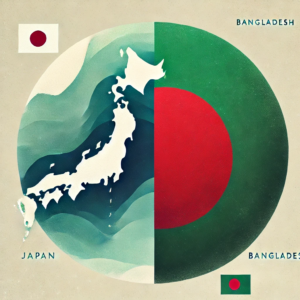Caught Between Legal Boundaries: Child Custody Disputes Across Japan and Bangladesh
I would like to express my sincere gratitude to MD Sanwar HOSSAIN, LLB (Hons) Wolverhampton University, MSS (Dhaka University), PgDiP (Northumbria University), Barrister at law (Hon’ble Society of Lincoln’s Inn), Advocate (Appellate Division) Supreme Court of Bangladesh and Managing Partner, S Hossain & Associates law office, for bringing the Bangladesh courts’ decisions to my attention.

I. Introduction
The breakdown of an international marriage often leads to complex cross-border disputes, especially when children are involved. Tensions can intensify if one parent decides to take the children to their home country, often without the consent of the other parent.
In such cases, when the countries involved are signatories to the HCCH 1980 Child Abduction Convention, the Convention’s mechanisms are designed to facilitate the prompt return of children to their country of habitual residence. This framework aims to prevent unilateral relocations that could have lasting impacts on the child’s stability. However, when one or both countries are not parties to the Convention, resolving such cases becomes significantly more challenging. In such cases, national courts are compelled to address competing custody claims, assess allegations of wrongful removal, and determine whether they have jurisdiction to hear the case, all while balancing, often quite differently, the best interests of the children involved.
The case presented here is just one of many unreported cases where a romance relationship turns sour, leading to lengthy and contentious legal battles across jurisdictions. This note will focus on the Bangladeshi court’s treatment of the case, as it offers useful insights into the court’s approach to handling such complex cross-border disputes.
